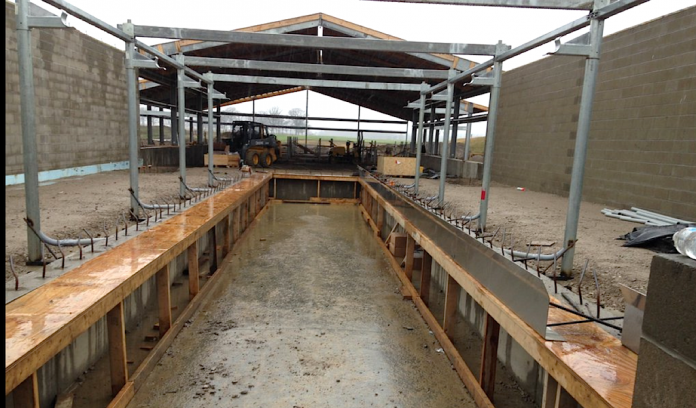
SALEM, Ohio — New cattle barns and an unfinished milking facility, which were part of the Ohio prison farm system and brought to a close when Ohio Gov. John Kasich decided to sell the farms in 2016, were more costly than first realized.
The state-owned farms were operated by the Ohio Department of Rehabilitation and Correction, along with the Ohio Penal Industries, and used inmate labor to produce food for the prisoners.
A report by the Ohio Inspector General shows that the new facilities cost the state a little more than $13 million, compared to roughly $8.6 million spent on the buildings. The larger amount comes from interest, because the bonds were not paid off from the sale of prison farms.
“None of the bond payments for the London and Marion barns were paid from these income sources — or from the Ohio Penal Industries budget,” according to the investigation. “Therefore, state of Ohio taxpayers will ultimately pay the estimated $13 million in principal and interest on the bonds issued for ODRC’s dairy improvement projects.”
Decision to sell
Kasich and former corrections department chief Gary Mohr decided to sell the prison farms in the spring of 2016, arguing the state could put the money and assets to better use, and that it would be more efficient to purchase milk than produce it with state-owned cows.
The dairy and beef cattle were sold, and about 10 different prison farm properties are in the process of being sold.
“Investigators learned the newly constructed dairy facilities at both institutions (London and Marion) continue to sit idle, remain unusable for their intended purpose, and to date have yet to be re-purposed for an alternative use,” according to the report.
The Inspector General’s report also found more than 20 violations with how the department handled labor, resources and favors granted to its staff.
The inspector made a series of recommendations for the department to review, and said of the prison farms, the department should “consider paying state-issued bonds for the dairy expansion project using OPI funds received through the sale and lease of property and equipment, related to the prison farm closures.”
Questionable value
The new cattle barns are of questionable value, because they were not finished, and because the department began scaling back on the project as early as 2015, when the corrections department administrators were discussing whether to continue the farming operation.
The concrete grooves that prevent cow slippage were unfinished, and much of the equipment, including electrical fixtures and other items inside the barns and other buildings, was removed and sold or returned to the supplier, according to the report.
Investigators also learned that Ohio State University had expressed interest in the facilities, but after visiting, OSU officials decided the costs of completing the barns were too high, compared to updating the university’s existing barns, and that there could be a student safety issue, if students were to work closely with inmates.
Response
“We appreciate the Office of the Inspector General for taking the time to review this matter and for working collaboratively with DRC during their investigation,” said corrections spokeswoman JoEllen Smith.
“Aggressive actions have already been taken to improve overall operations, including leadership and personnel changes within the Ohio Penal Industries and significant changes in policy and procedures. We will review the report to determine what, if any additional steps, need to be taken.
Looking ahead
The investigators’ report is being filed with the Franklin County Prosecutor’s Office, the City of Columbus Prosecuting Attorney, and the Ohio Ethics Commission, for consideration.
The four Ohio Penal Industries officials accused of wrongdoing in the report are no longer with the department, according to the corrections department. Some of the department’s staff were fired following the investigation, and some retired or quit during the investigation.
You can read the full report from the inspector general at www.watchdog.ohio.gov/Portals/0/pdf/investigations/2017-CA00024.pdf, and on www.farmanddairy.com.









